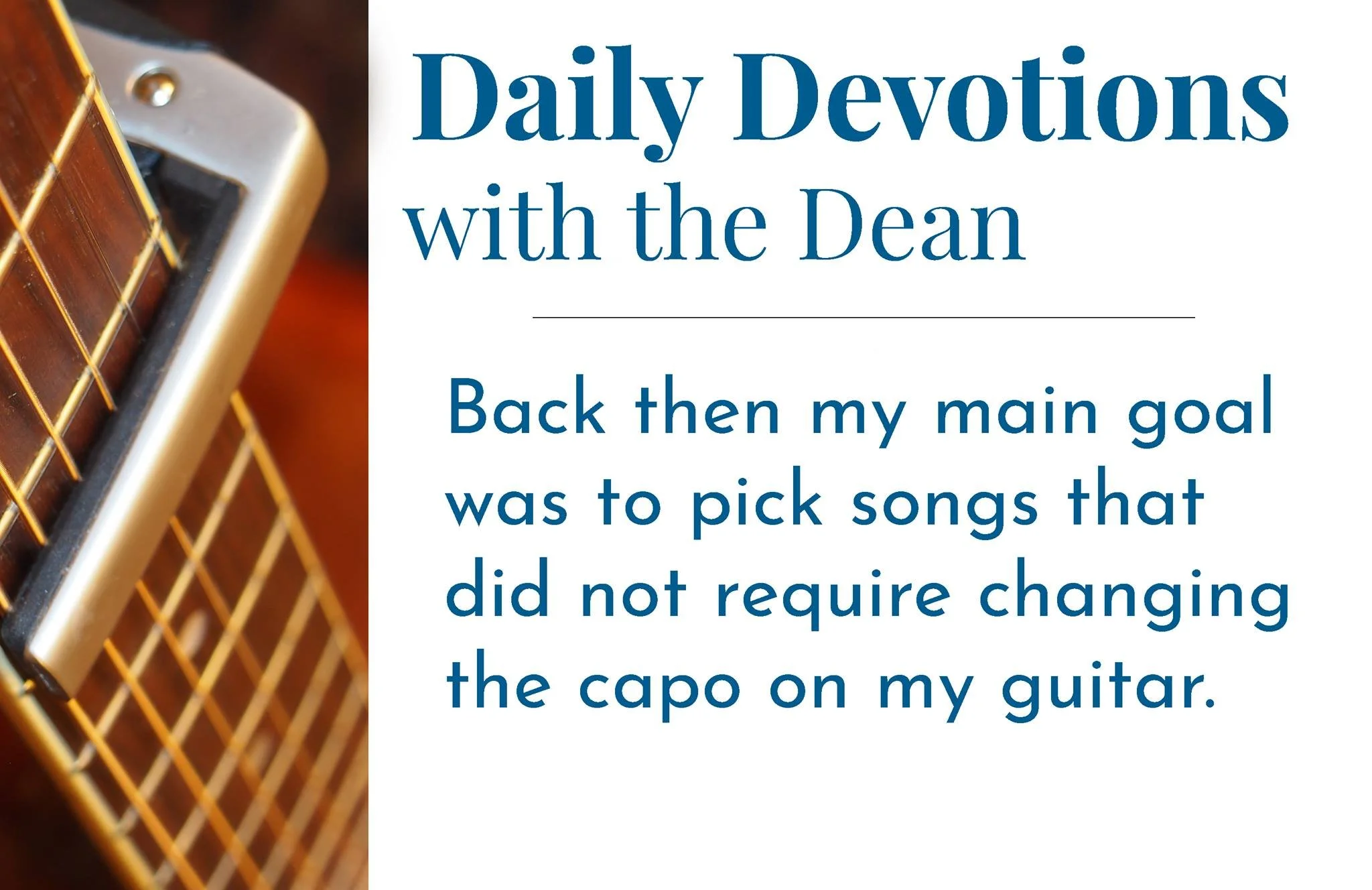Tuesday • 6/11/2024 •
Welcome to Daily Office Devotions. I’m Reggie Kidd. Thanks for joining me.
We’re taking a detour from the Daily Office readings this week and next. Instead, we’re thinking through various facets of worship and how our Lord provides meaningful communion with him through our formal corporate worship as well as in individual worship in our daily devotions. The thoughts offered here are excerpts (sometimes lightly edited) from articles I wrote for Worship Leader Magazine a few years ago.
They come from a season in my life when I was on a journey from more generic free-form worship to worship shaped by the classic liturgy. I hope these observations help you in your own quest to love God and your neighbor.
“Bigger Voices”
My father was a victim of Alzheimer’s disease. It was hard to watch this once vibrantly inquisitive retired college professor lose his ability to remember. Along with his ability to remember, he lost his capacity for learning as well. For a brief stint, my dad stayed in a facility for the “pleasantly confused.” As we were moving him in to is new home in the memory care unit, I noticed flaps over the elevator controls.
“Why the flaps?” I asked a nurse.
“It’s how we keep residents from leaving their floor and wandering off.”
“I don’t get it. How does that work?”
“A person like your father doesn’t just have memory issues. Although he can’t remember old things, he can’t learn new things either. So no matter how many times he might see someone lift the flap and press the button underneath, he can’t learn it for himself.”
In that moment, I realized the phrase “pleasantly confused” was a nice way of describing something quite sad: being trapped in the present.
Image: "330_capo" by Lamerie is licensed under CC BY-NC 2.0
We are in the midst of one of the realignments — writer Phyllis Tickle calls them “rummage sales” — the faith goes through every 500 years or so. Around A.D. 500 there was a Great Consolidation, around A.D. 1000 a Great Schism, around A.D. 1500 a Great Reformation. Now we are experiencing, she maintains, a Great Emergence.
Just what it is that will emerge is unclear. Everything seems to be up for grabs — how to worship, whom to worship, why worship in the first place. One thing that is clear, at least to me, is this: privileged — or consigned — to live in such a time, we need wisdom greater than our own. When David Crowder sings, “I need a voice bigger than mine,” I feel him. Our capacity to contribute to the future hinges on our access to “bigger voices” that free us from entrapment in the present.
When I first started designing worship services, my main goal was to pick songs that complemented the sermon and that did not require changing the capo setting on my guitar. I was using a screw-on capo that took about a minute to adjust. So the ideal set of worship music consisted of songs that could be played, say, at “capo 3” (like Eb, Bb, or F) or in “open capo” (like C, G, or D). It was pretty confining.
Eventually, not only did I figure out other capos existed, more importantly I started teaching worship in a school that valued the theology of the Great Reformation. From those “bigger voices” of a half millennium ago, I learned the value of creeds and confessions in worship.
Recent years have taken me further back, to those “bigger voices” that gave us the Great Consolidation in the middle of the first millennium.
The 4th century theologian Athanasius of Alexandria argued that worship itself hangs on celebrating the Word’s taking on flesh to redeem all creation. If Christ is God, all is won. If not, nothing is.
The anonymous 2nd century singers of the so-called Odes of Solomon modeled worship as a participation in Jesus’s own song: “lifting his voice to the Most High and offering to him those who have become sons through him.”
In the late 6th century, Gregory the Great, bishop of Rome, launched a quest for a common pattern of chant for the Western church. From 1,500 years away, he gently rebukes our capitulation to niche marketing and musical apartheid.
From Jerusalem to Syria to Rome, churches’ reflection on Scripture led to a common pattern of gathering in praise, attending to the Word, communing at the Table, and joyfully charging back out into the world to minister Christ there.
Here’s the great thing about rummage sales. They give you a chance to unload some things that haven’t done you much good in a long time. They also give you a chance to rediscover things you’d forgotten you even had, but now can’t believe you’ve been able to live without. There is much the ancient church has to teach us about God, and about the how and why of worship.
My father’s disease left him living only in the present. He had no access to the past, nor to the future. Perhaps it’s our very access to worship’s past that holds the greatest promise for worship’s renewal in the future.
Be blessed this day,
Reggie Kidd+
Entrapment in the Present
“Ancient Future” Resources for Worship Renewal
Robert Webber, Ancient Future Worship (Baker Books, 2008)
Athanasius of Alexandria, On the Incarnation (St. Vladimirs Seminary Press, 1993), with an introduction by C. S. Lewis. Text, minus Lewis introduction at http://ccel.org.
The Odes of Solomon Project, 2CD set (http://www.theodesproject.com/index.cfm).
Hippolytus, On the Apostolic Tradition (SVS Press, 2001)
St. Cyril of Jerusalem, On the Sacraments (SVS Press, 1995, 2017)



